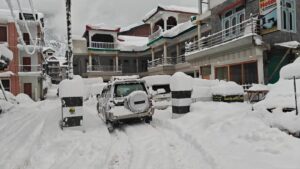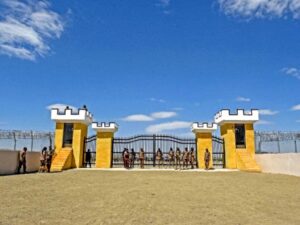PESHAWAR – What began as a peaceful journey for a Karachi-based qawwali group soon ended in bloodshed and heartbreak. The Kalat bus attack killed three people and wounded several others in Balochistan’s rugged hills.
The group of 17 was heading to Quetta to perform at a spiritual gathering. They carried harmoniums, tablas, and sacred verses. However, near Nimargh Cross in Kalat, their van—part of a passenger bus—came under sudden fire. Survivors described it as “hell unleashed without warning.”
Also Read: Counterterrorism Action Plan Finalized to eliminate terrorism
“We weren’t even playing music—we were just traveling quietly,” said Qawwal Nadeem Sabri, who lost two family members. “One moment we were on the road, the next we were under a storm of bullets and grenades.”
Meanwhile, authorities said gunmen hiding in the hills ambushed the vehicle. When the driver refused to stop, the attackers hurled grenades and opened fire with automatic weapons. Bullets tore through the bus, and screams filled the air. Three group members died instantly. Moreover, twelve others suffered injuries, some of them critical.
The Kalat bus attack drew sharp condemnation from across the country. Chief Minister Sarfraz Bugti called it “an act of cowardice” and demanded swift action. As a result, authorities declared an emergency at District Headquarters Hospital Kalat. The wounded arrived amid scenes of panic and tears.
Also Read: Thousands Defy Ban to Attend Pashtun Qaumi Jirga Against Terrorism
For survivors, the grief runs deep. “They targeted people who were messengers of peace,” said Majid Sabri. “We had no political agenda, no controversy—just a mission to share spiritual light. Now, we are returning home with coffins.”
Clearly, this attack highlights the ongoing risks civilians face in Balochistan. Sectarian and insurgent violence continues to scar everyday life. In response, security forces launched a search operation in the nearby mountains. However, no arrests have been made so far.
Today, as the group prepares to bury its dead, their instruments lie untouched—silent witnesses to a journey that should not have ended in tragedy.











